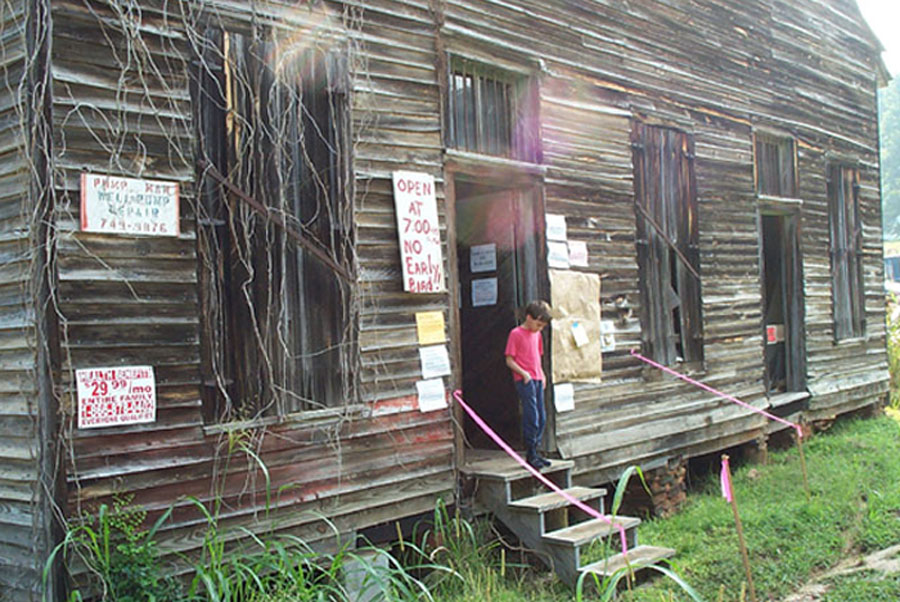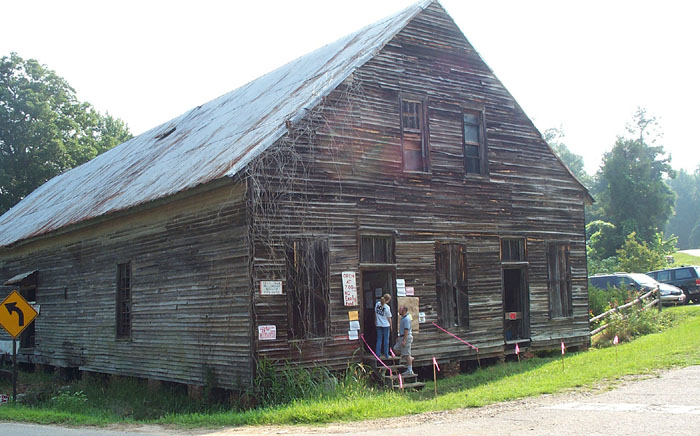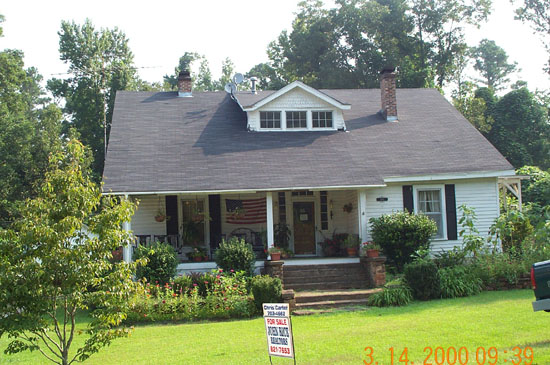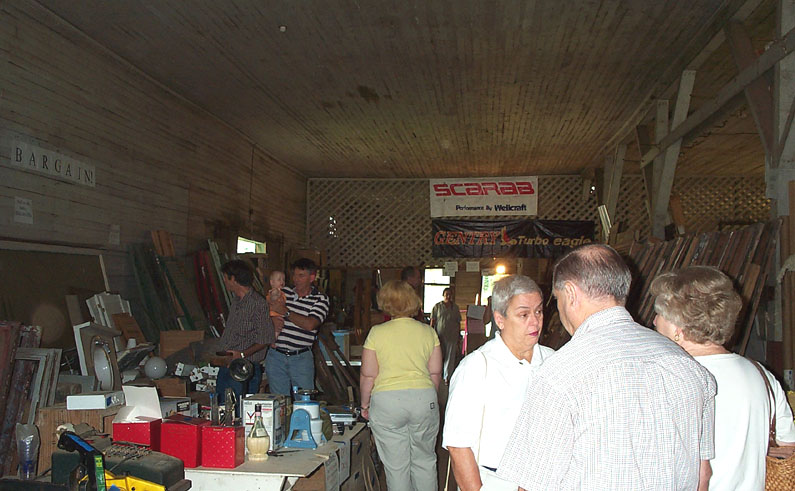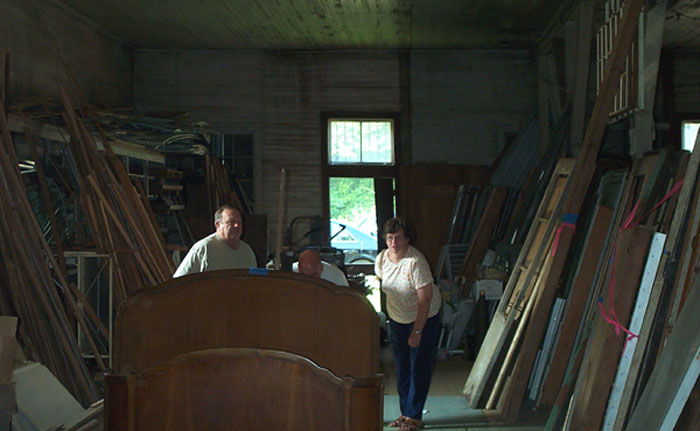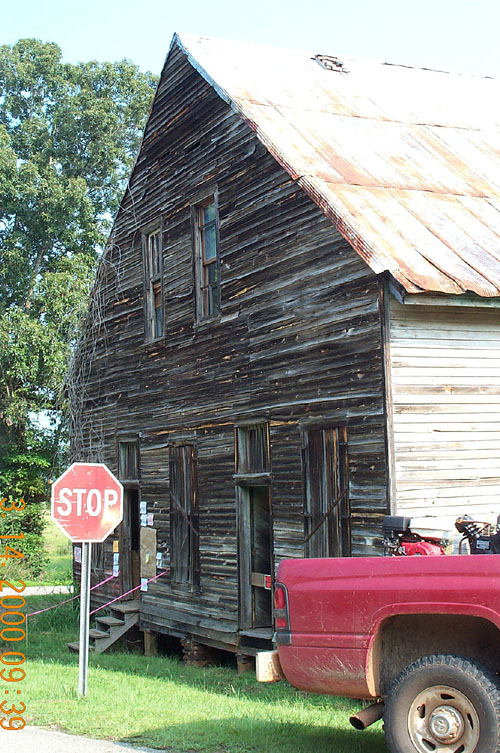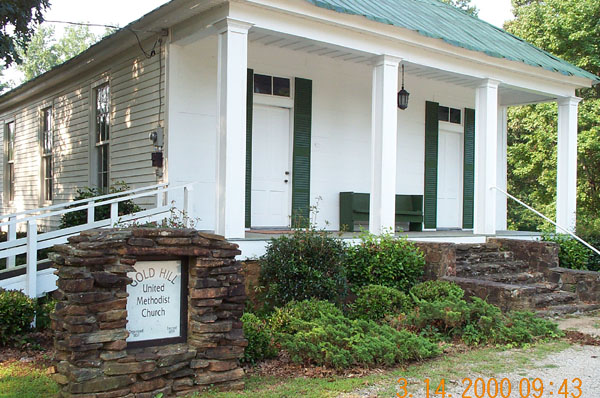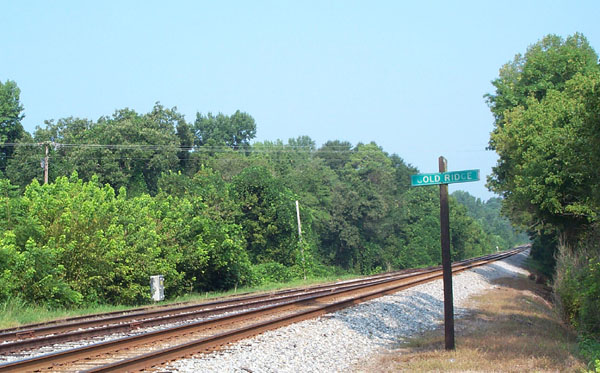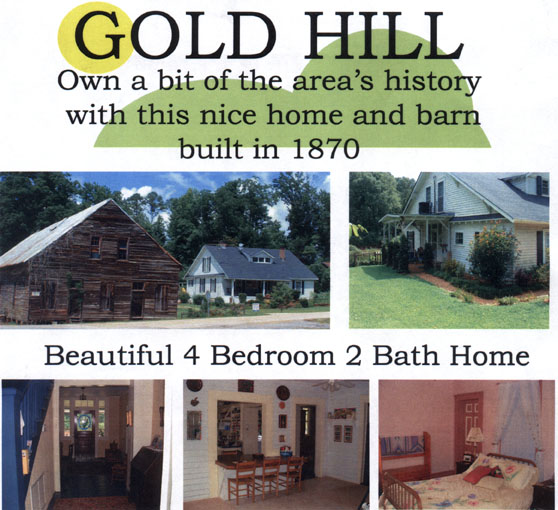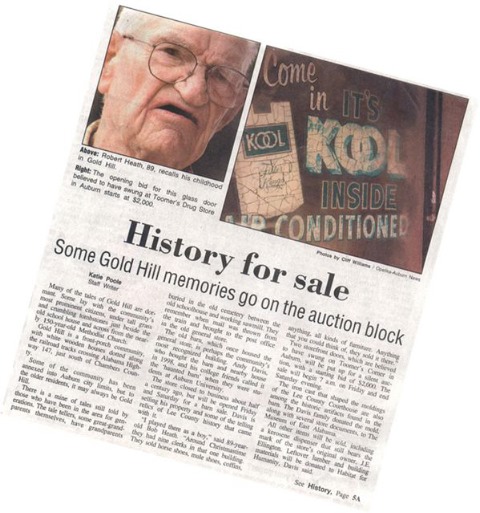
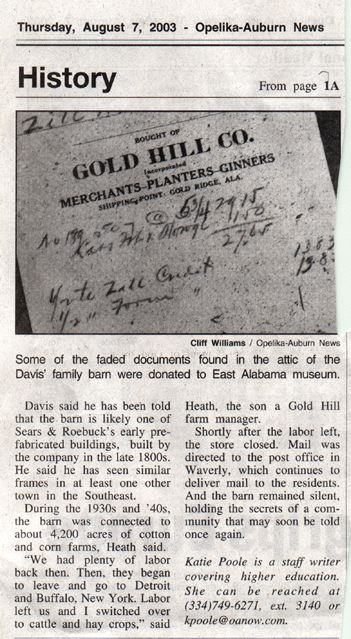
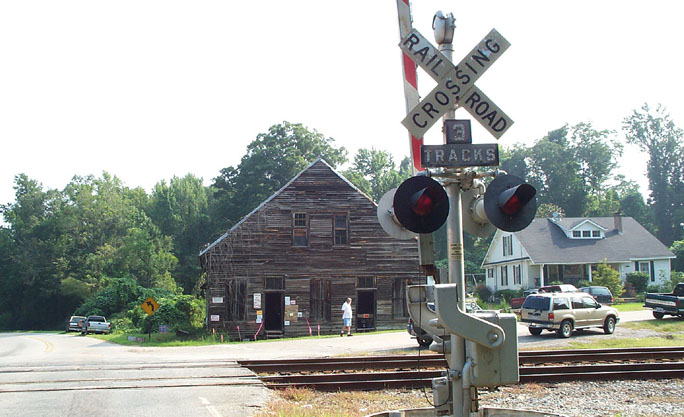
A visit to Gold
Hill, Alabama
Web page and photos
by Ed Williams
Auburn, Alabama
Aug. 8, 2003
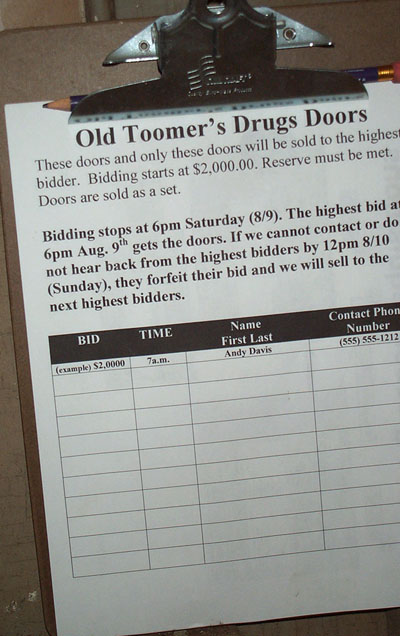
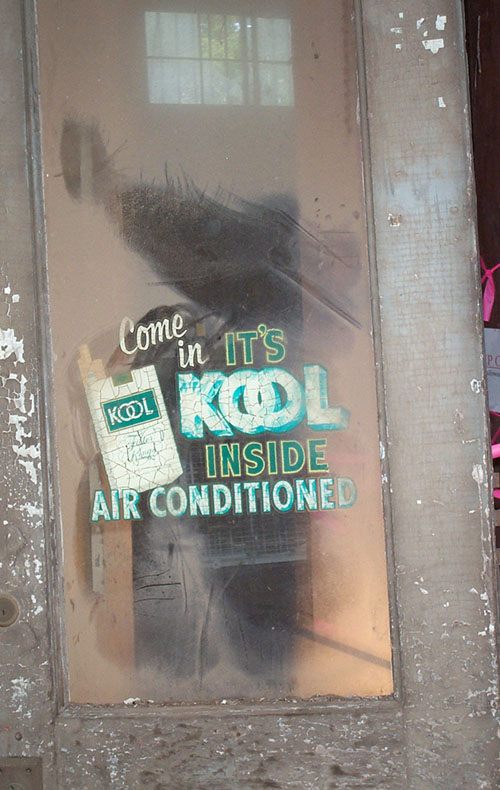
History
for sale
Some Gold Hill memories go on the auction block
By Katie
Poole
Staff Writer
Staff
report
The
Opelika-Auburn News
Aug.
7, 2003
Many of the tales of Gold Hill are dormant. Some lay with the community's
most prominent citizens, under tall grass and crumbling tombstones just
beside the old school house and across from the nearly 150-year-old
Methodist Church.
Gold Hill is a front-porch community, with white wooden houses dotted along
the railroad tracks crossing Alabama Hwy 147, just south of Chambers County.
Some of the community has been annexed into Auburn city limits, but to the
older residents, it may always be Gold Hill.
There is a mine of tales still told by those that have been in the area for
generations. The tale tellers, some great-grandparents themselves, have
grandparents buried in the old cemetery between the old school house and
working saw mill. They remember when mail was thrown from the train and
brought to the post office in the old general store.
The old barn, which once housed the general store, is perhaps the community's
most recognized building. Andy Davis, who bought the barn and nearby house
in 1998, and his college friends called it the 'haunted barn' when they were
students at Auburn University.
The store closed to business about half a century ago, but will be opened
Friday and Saturday for a barn sale. Davis is selling his property and some
of the telling relics of Lee County history that came with it.
"I played there as a boy," said 89-year-old Bob Heath. "Around Christmastime
they had nine clerks in that one building. They sold horse shoes, mule
shoes, coffins, anything, all kinds of furniture. Anything that you could
think of, they sold it there."
Two store-front doors, which are believed to have swung on Toomer's Corner in
Auburn, will be put up for a silent auction, with a starting bid of $2,000.
The sale will begin 7 a.m. on Friday and end Saturday evening.
The iron cast that shaped the moldings of the Lee County Courthouse are also
among the historic artifacts found in the barn. The Davis family donated the
mold, along with several store documents, to The Museum of East Alabama.
All other items will be sold, including a kerosene dispenser that still bears
the mark of the store's original owner, J.E. Ellington. Leftover lumber and
building materials will be donated to Habitat for Humanity, Davis said.
Davis said he has been told that the barn is likely one of Sears & Roebuck's
early prefabricated buildings, built by the company in the late 1800s. He
said he has seen similar frames in at least one other town in the Southeast.
During the 1930s and 40s, the barn was connected to about 4200 acres of
cotton and corn farms, Heath said.
"We had plenty of labor back then. Then, they began to leave and go to
Detroit and Buffalo, NY. Labor left us and I switched over to cattle and hay
crops," said Heath, the son a Gold Hill farm manager.
Shortly after the labor left, the store closed. Mail was directed to the post
office in Waverly, which continues to deliver mail to the residents. And the
barn remained silent, holding the secrets of a community that may soon be
told once again.
\